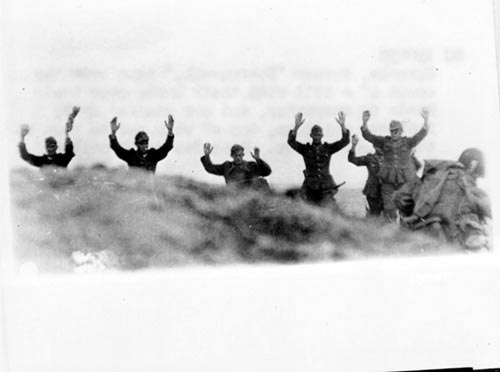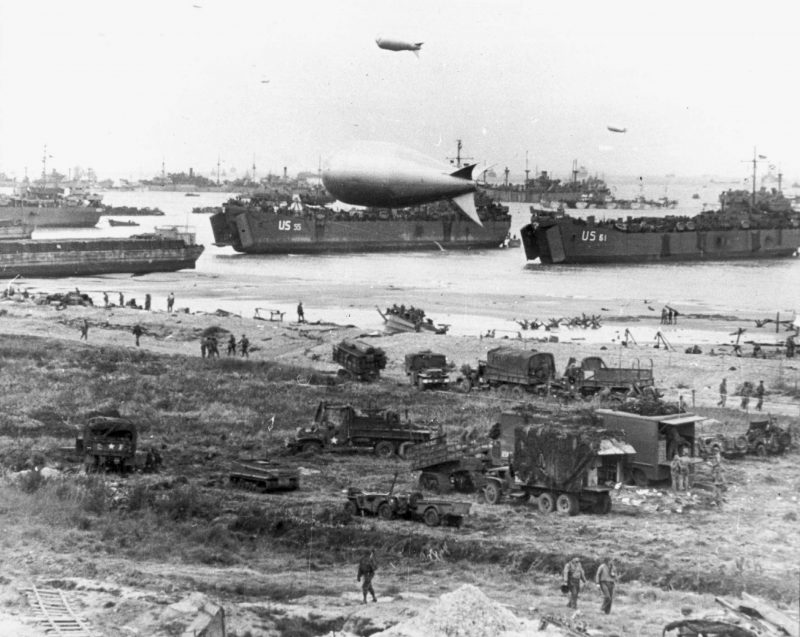
On the morning of June 6th, 1944 the military collapse of the Germans in western Europe began, marking a milestone in Europe’s history. The USA and British troops landed in Normandy, in what would be the largest sea invasion in the history: the French beaches were invaded by 7.000 ships, led by Admiral Bertram Ramsay, and 12.000 aircrafts under Air Marshal Trafford Leigh-Mallory’s order. Operation Overlord and the subsequent battle for Normandy took place between June 6th and August 1st, 1944, but the initial phase, which involved the firm consolidation of the Allies’ position, was named Normandy landings or Operation Neptune.
At dawn, the Allies landed thousands of soldiers on five beaches in Normandy, each receiving a code name: British had Sword and Gold, Canadians had Juno and Americans Omaha and Utah. The landing continued throughout the day of 6 June and has extended even further until the Germans were defeated in the West.
“Absolutely anything planned for that part of the beach did not work.”
Robert Edlin was a member of Battalion 2 of Rangers who participated in the first wave at Omaha beach assault.
“Our assault boat hit a sandbank. I verified and we were at least 70 meters away from the shore so we could still hope for a dry landing. I told the helmsman: “Try to move forward!” He screamed that he can’t. That British sailor had all the courage in the world, but could not get us of the sandbar. I told him to throw the ramp or else we will die there. 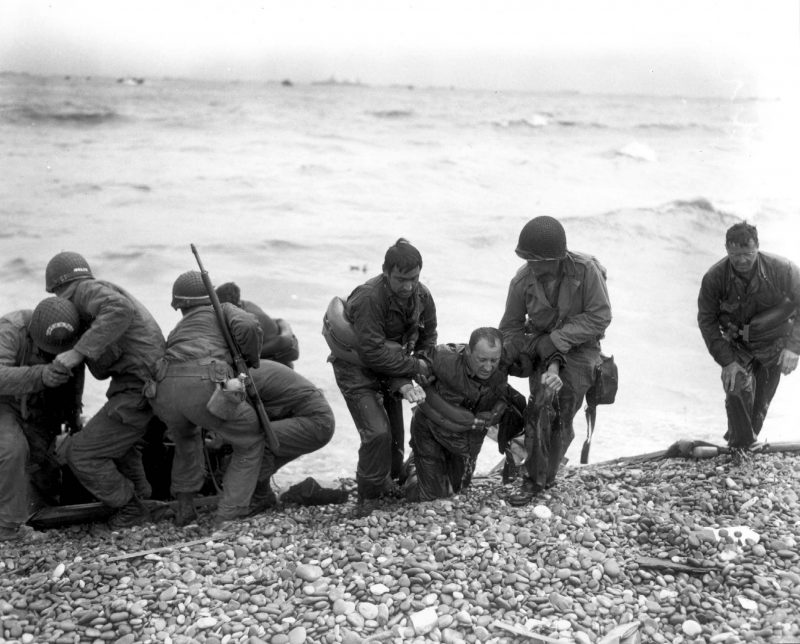
We were instructed for years not to get off the ship through the front part of the ramp because the boat can be shaken by waves and can fall on you. So we got off through the sides. I looked to my right and I saw Company B’s boat next to us, with Lieutenant Bob Fitzsimmons, a good friend, directly hitting the ramp. I said to myself: it’s over for half of Company B.
It was cold, terribly cold, even though it was June. The water’s temperature was probably 45-50 degrees Fahrenheit (n.r. – equivalent to about 10 degrees Celsius). The water was reaching my shoulders and I saw people sinking. I tried to grab a couple of them, but my job was to go forward, straight to the weapons. There were bodies floating everywhere. They were with their faces down, with guns still in their back. They inflated the lifejackets. Fortunately, most of the Rangers didn’t inflate their lifejackets, otherwise they could also have been overturned and could have drowned.
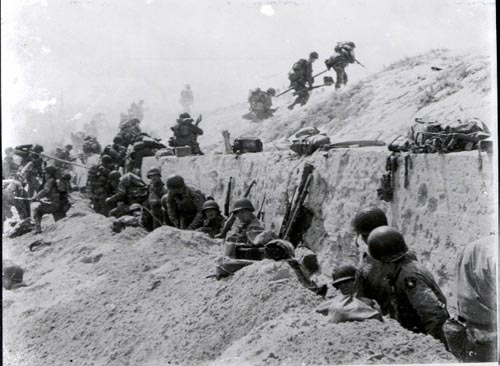
I started to run with the rifle in front of me. I went directly on the beach, trying to reach the seaway. In front of me was a part of the II6 Infantry, lying on the ground, behind the obstacles that were on the beach. They didn’t get to the seaway. I continued to shout at them: “You must get up and go! You must get up and go!” But they didn’t move. They were tired and completely defeated. There was no time for me to help them.”
I continued to walk on the beach. There were mines and obstacles everywhere. The Air force had completely missed them. There was not a single hole to take refuge. The mines weren’t detonated. Absolutely anything planned for that part of the beach didn’t work out. I knew that Vierville-sur-Mer will be like hell and so it was.
When I was about 20 meters away from the waters edge, I was struck by, what I believe it was, a bullet fired by a sniper. It hurt me and it broke my right leg. I thought to myself: well, now I have the Purple Heart (n.r. – Us military decoration awarded to those killed or wounded in military service). I fell, and while I was falling I felt like a hot poker was forced into my leg. The rifle fell three meters away. I crawled to pick it up and when I got up on my left leg, another burst of fire broke the muscles from my leg, knocking me down again.
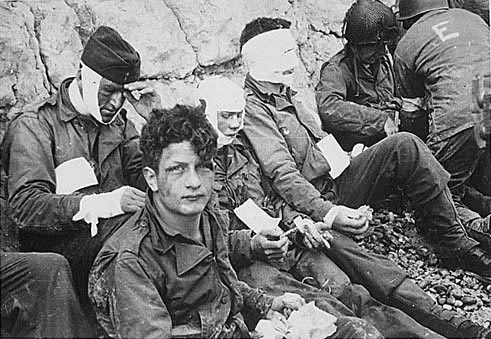
I stood there for a few seconds, I looked forward and I saw some Rangers lying on the ground. One of them was Butch Bladorn from Wisconsin. I shouted at him: “Get up and run!” Butch, a great and strong man, looked back and told me: “I can’t!” I stood up and I went to him limping. I was going to kick him in the a** and take him of that beach. He was sitting on his stomach, with his face in the sand. Then I saw that his back was bleeding. I understood that he was hit in the stomach and the bullet came out through his spine leaving him completely immobilized. I felt bad I yelled at him, but I had no time to help him. I was thinking: Well, this is Butch’s end. Fortunately, it wasn’t. He became a farmer in Wisconsin.
I was going forward while limping. After being shot, your feet lose their functions, not suddenly, but slowly. The pain was indescribable. I fell down on my knees and on my hands and tried to crawl forward. I managed to move a few meters then I fainted for a few minutes. When I was back I saw Sergeant Bill Klaus. He was at the seaway. When he saw me in that difficult situation he crawled through the rain of bullets and pulled me under the shelter of a wall.
Klaus also had a wounded leg and a doctor injected him morphine. The doctor gave me a shot too. My psychic mood told me to inject the morphine in the left leg as it hurted the most. I remembered that if he would inject me in the arm it would still get to the leg. Then I told him to give me a second shot as I had been hurt in the other leg too. He didn’t.
There were a few Rangers who gathered at the channel – Sergeant William Courtney, William Dreher, Garfield Ray, Gabby Hart, and Sergeant Charles Berg. I shouted at them: “You must leave this place! Get and take some weapons with you!” They left immediately.
My platoon Sergeant, Bill White, who I called Whitey, took the lead. He was small, very energetic and very brave. He led the few people left in the first platoon and began to climb the cliff. I crawled so much until I reached a shelter in some bushes behind a villa. There was a fountain with a round stone, a bucket and a handle for the rope. It was so tempting. I was alone and I desperately needed some water! But my years of training taught me this was a trap.
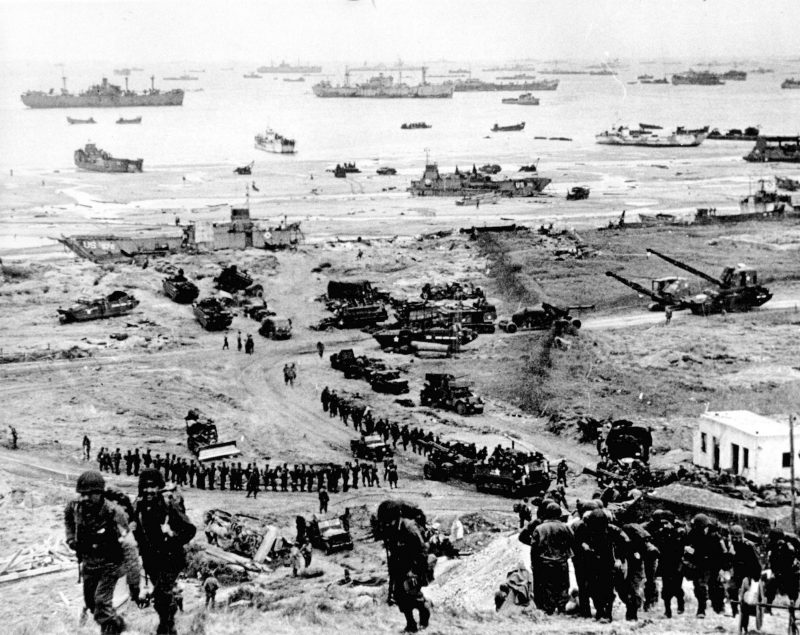
I looked up towards the cliff and I was sure I couldn’t make it with this leg. Where was everyone? Have they all given up? Then I heard Dreher screaming: “Come on up! These trenches are empty.” I was thinking: oh, God, I can’t get there! I heard an American machine gun and Courtney shouted: “Damn, Dreher! Now they are empty.”
Then we heard several firearms of small caliber and German grenades. I could hear Courtney scream: “Cover me!” I heard Ray Garfiled’s automatic rifle. Then there was silence.
Then I asked myself where the Rangers from the Battalion 5 are. I went back, but I couldn’t walk no more, not even limp. I crawled back on the beach. I saw the ranger from 5 coming through the smoke of a flaming LST (Landing Ship Tank) hit by artillery. Col. Schneider saw the carnage from the beach and used his experiences with the rangers in Africa, Sicily and Anzio. He used the smoke as a shield and moved behind it saving Troops in the 5th Battalion.
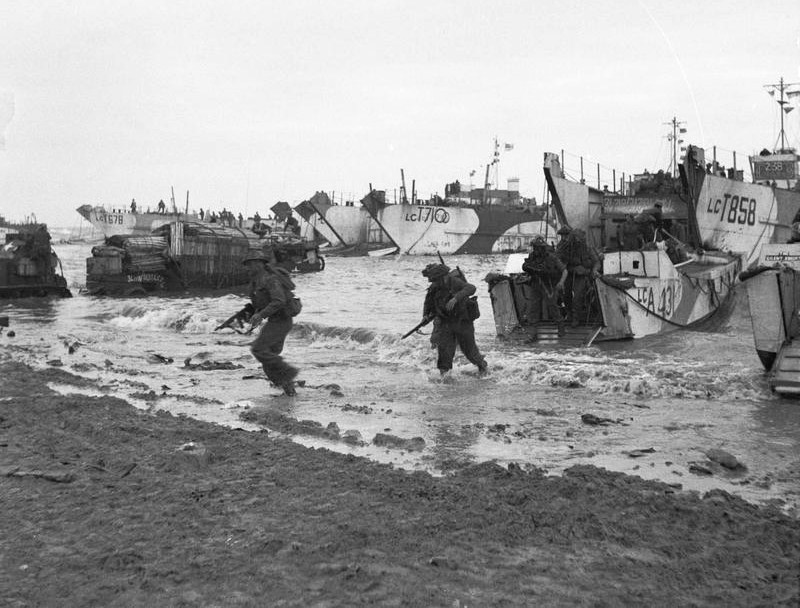
Years of training they told me there would be a counter attack. I gathered the wounded soldiers at the seaway and I told them to arm themselves as well as possible. I thought that if the Germans will come we will either be captured, or we will die on the beach, but at least we will take them with us. I know it sounds ridiculous, but 10 or 15 rangers were lying there, facing the seafront, praying that White, Courteny, Dreher and the 5th Battalion will reach the weapons. The fight was over unless the Germans counterattacked.
I looked to the sea. There was nothing. No reinforcements were coming. I thought they abandoned the invasion. Soon we will be dead or captured. Everyone withdrawn and abandoned us. Well, at least we tried. A guy crawled to me and told me he was colonel of the 29th Infantry Division. He told us to relax, we will be ok. Companies D, E and F were at Ponte. The weapons have been destroyed. Companies A and B and the 5th Battalion were indoors. Divisions 29th and 1st were coming off the beach.
A colonel looked at me and said: “You’ve done your job.” “How? By using two German bullets for my legs?” I told him. Despite the horrible pain, I hoped I could catch up my platoon the next day.”
